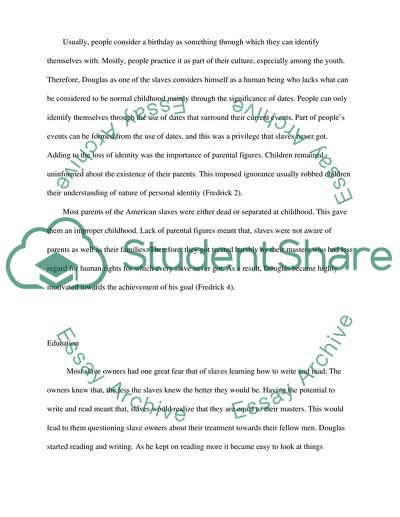Cite this document
(“American Slave Essay Example | Topics and Well Written Essays - 2000 words”, n.d.)
Retrieved from https://studentshare.org/history/1594323-american-slave
Retrieved from https://studentshare.org/history/1594323-american-slave
(American Slave Essay Example | Topics and Well Written Essays - 2000 Words)
https://studentshare.org/history/1594323-american-slave.
https://studentshare.org/history/1594323-american-slave.
“American Slave Essay Example | Topics and Well Written Essays - 2000 Words”, n.d. https://studentshare.org/history/1594323-american-slave.


